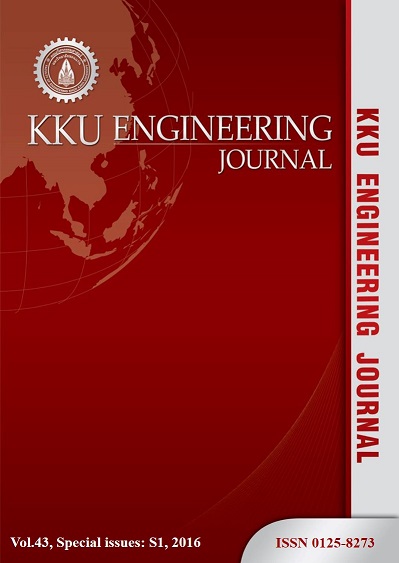English proficiency requirements for engineering graduates at private organizations in Thailand
Main Article Content
Abstract
A primary goal of world class universities is teaching and producing talented graduates who exceed the expectations of their chosen industry. English proficiency is one of the most important requirements for global companies as it is the common medium for international communication in any industries. The purpose of this research is to investigate English proficiency skills required for engineering graduates to communicate and work with private industrial organizations in Thailand. A questionnaire was developed in order to investigate requirements of private engineering companies based upon four English skills including listening, speaking, reading, and writing. The questionnaire was also used to evaluate the levels of satisfaction on English proficiency of engineering graduates who have been working in their organizations. At the end of the survey period, 129 questionnaires were returned (46% response rate from 280 delivered questionnaires) from various industries covering Thai and international companies located in Thailand. Results indicate that the employers have different requirement levels on each English skill. The four skills can be ranked from the most to least important as reading, listening, writing, and speaking, respectively. The results also show that the proficiency in the four English skills of Thai engineering graduates has not met the employers’ requirements. The results of this research can be used to develop English courses for Thai engineering students in response to their lack of English skills.
from 280 delivered questionnaires) from various industries covering Thai and international companies located in Thailand. Results indicate that the employers have different requirement levels on each English skill. The four skills can be ranked from the most to least important as reading, listening, writing, and speaking, respectively. The results also show that the proficiency in the four English skills of Thai engineering graduates has not met the employers’ requirements. The results of this research can be used to develop English courses for Thai engineering students in response to their lack of English skills.
 from 280 delivered questionnaires) from various industries covering Thai and international companies located in Thailand. Results indicate that the employers have different requirement levels on each English skill. The four skills can be ranked from the most to least important as reading, listening, writing, and speaking, respectively. The results also show that the proficiency in the four English skills of Thai engineering graduates has not met the employers’ requirements. The results of this research can be used to develop English courses for Thai engineering students in response to their lack of English skills.
from 280 delivered questionnaires) from various industries covering Thai and international companies located in Thailand. Results indicate that the employers have different requirement levels on each English skill. The four skills can be ranked from the most to least important as reading, listening, writing, and speaking, respectively. The results also show that the proficiency in the four English skills of Thai engineering graduates has not met the employers’ requirements. The results of this research can be used to develop English courses for Thai engineering students in response to their lack of English skills.
Article Details
How to Cite
Sureeyatanapas, P., Boonma, A., & Thalangkan, S. (2016). English proficiency requirements for engineering graduates at private organizations in Thailand. Engineering and Applied Science Research, 43, 35–39. retrieved from https://ph01.tci-thaijo.org/index.php/easr/article/view/69658
Section
ORIGINAL RESEARCH
This work is licensed under a Creative Commons Attribution-NonCommercial-NoDerivatives 4.0 International License.



